
Is Competitive Fly Fishing a Problem?
**I should point out that, being a competitive angler, I have an obvious bias in favor of competitions. Despite this I think I have done a decent job understanding and examining both sides of the argument. I have also asked a number of other anglers I respect, both competitive and not, for their opinions on this matter, so these words are not just mine. I certainly don’t speak for everyone involved in the competitive world, but I feel confident saying that most would agree with this piece.**
Recently, I came across a Hatch Magazine Facebook post (from Nov. 24) about their article titled, “Does Competitive Fly Fishing have a Future in the U.S.?”. Overall it was an okay piece and I agree with some of the points, however the comments and reactions from other readers were much more disheartening. Of almost two hundred comments, I only saw a handful of positive thoughts on competitive angling in America.
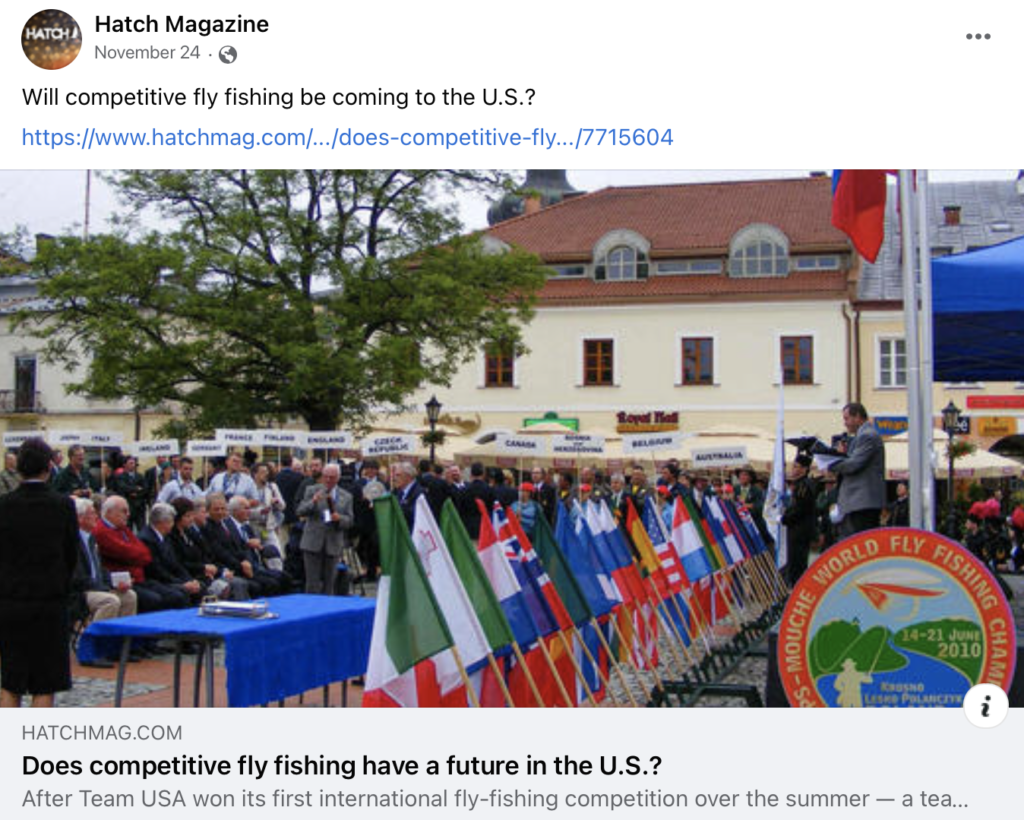
Competitive fly fishing has never been the most popular sport. I’ve seen a lot of anglers enter and leave the scene, and at any given time there’s probably only about seventy five serious competitors and another hundred that compete now and then. Based on the size of the U.S. compared to other countries with a history of competition fishing, I would expect numbers like this in every state, not the whole country. A lot of people here just don’t have an interest in making their time on the water competitive, which I completely get. However, there are also a lot of anglers that really think competitive fly fishing is a problem, and do not want to see the sport grow. I think this has had a big impact, hindering competition fly fishing from taking off in a lot of areas and being introduced to anglers that may enjoy it.
So why the hate?
I have heard people talk down on competitive fishing ever since I started in 2015. The most common argument I hear against it is that it is “not what fly fishing is all about” or that “it takes away from the meaning of the sport.” This may be true for some people, but fly fishing is an individual experience. What one person thinks fly fishing is “all about” isn’t what another person thinks, and it’s wrong for anyone to try and place their fishing values onto other anglers. I rarely see anyone bash anglers who only fish streamers for big fish or exclusively throw dries on bamboo, and never with the disdain they do for competitions. Someone isn’t necessarily “missing the point” because they want to catch a few more fish or compete a few times a year. Just because people like to compare numbers at the end of the day doesn’t mean the way they enjoy fishing is any less valid, that’s just they way they like to experience it. They are getting the same relaxation, reflection, and connection with nature as anyone else, just in their own way and not the “traditional” one.
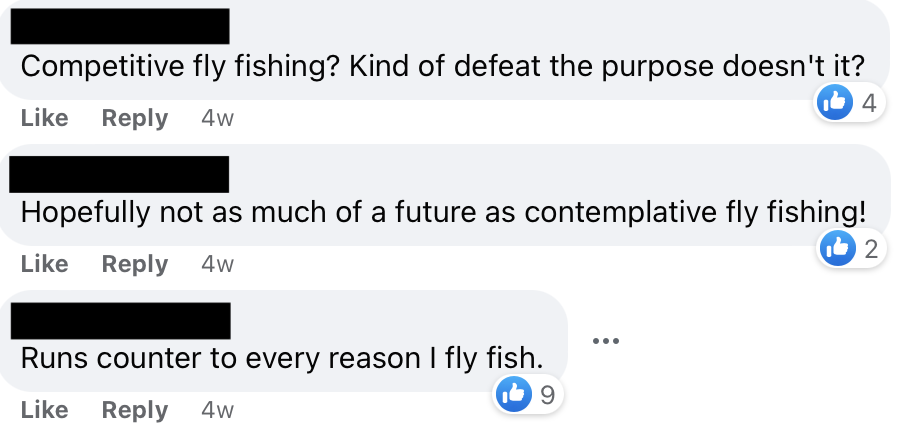
Not only that but being competitive doesn’t take away from the experience like many people think. Many that choose to compete do so because they enjoy the challenge of putting their skills to the test and learning from it. The overwhelming majority of anglers who compete are good friends and welcoming to newcomers. We freely exchange info and flies between sessions and encourage each other to do well. Fly fishing competitions are not cut-throat or overly intense to the point you can’t have a good time if you aren’t winning. I still value every fish I catch, enjoy the time I spend on the water, and I am immersed in nature like every other angler. I am just as relaxed and contemplative during my time fishing in a competition as out of one. Competing has actually elevated my fishing experience. I have seen the most amazing places, fished the most interesting waters, and learned more about fishing than I thought possible. I have even met my closest friends through the sport, who will always be a big part of my life. I’m sure most other competitors would say the same things.
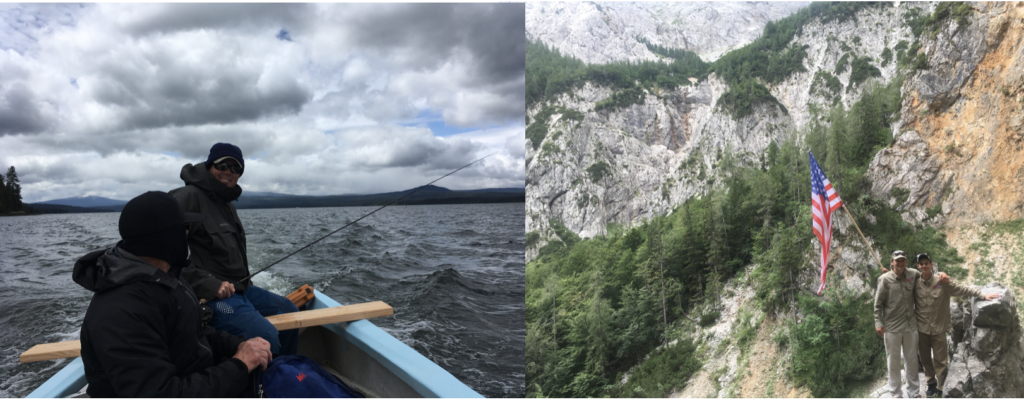
Of course, there are a few bad actors that think being a competitive angler makes them better than others, and that believe this style of fishing is somehow elite. Sadly, some of these people are outspoken and contribute to the negative view of competitions. However, these people are disliked more by the competitive community than the rest because we don’t agree or want to be defined by their beliefs. I also don’t think this is anything unique to competitive fishing, as I see the same aloofness from at least a few anglers in every discipline of fly fishing. In any situation this is only representative of the individual, and not the group as a whole.
Does it affect the fishery?
The other reason people dislike competitive fly fishing is because they think it is an abuse of the resource and significantly increases pressure. In my opinion this is a big misconception from people not understanding the rules of competitions, how they are run, and assuming they are similar to Bassmasters. Fly fishing competitions are highly ethical endeavors. Competition organizers plan out the timing and waterways to minimize impact on the fish and to non-competitive anglers. Comps are never held during peak spawn or hot water events, and plenty have been canceled to protect the fish. All competitions larger than eight people also must get permits directly from the fisheries department, a further assurance that they are safe for the resource.
During a competition, fish are treated with the highest respect. They are fought and released faster than in any other situation because we have extra incentive and the skill to do so. In most competitions, they are released as soon as they are netted. Even in the few tournaments where they are measured, it is done extremely fast and without the fish leaving the water for more than a few seconds. The techniques we use for measuring fish are actually the same that state agencies use in surveys and have been proven safe. There are stringent safe handling rules to assure the fish are treated properly even by new anglers who don’t know better. There are a number of specific rules in place to make sure the fish aren’t harmed in other ways as well, like rigging requirements that reduce accidental snagging and mandatory use of barbless hooks to minimize mouth damage. Anyone can do their own research and read the FIPS-MOUCHE rules, and you’ll see that they are much more strict than the regular fishing laws in most areas. A few studies say that average catch and release anglers inadvertently kill at least 5% percent of the fish they catch, but competitive anglers are likely well below this number based on the regulations we follow and the speed we land and release fish. The competitors (and most spectators if there are any) are all fishermen and women who care about the resource, and you’ll never find their trash lying around or see the banks trampled either. Additionally, because we take so much data on the fish we catch (species, size, exact locations and times), a number of local fisheries management departments have used competitions as a method of assessing the fishery, helping improve the waters for everyone.
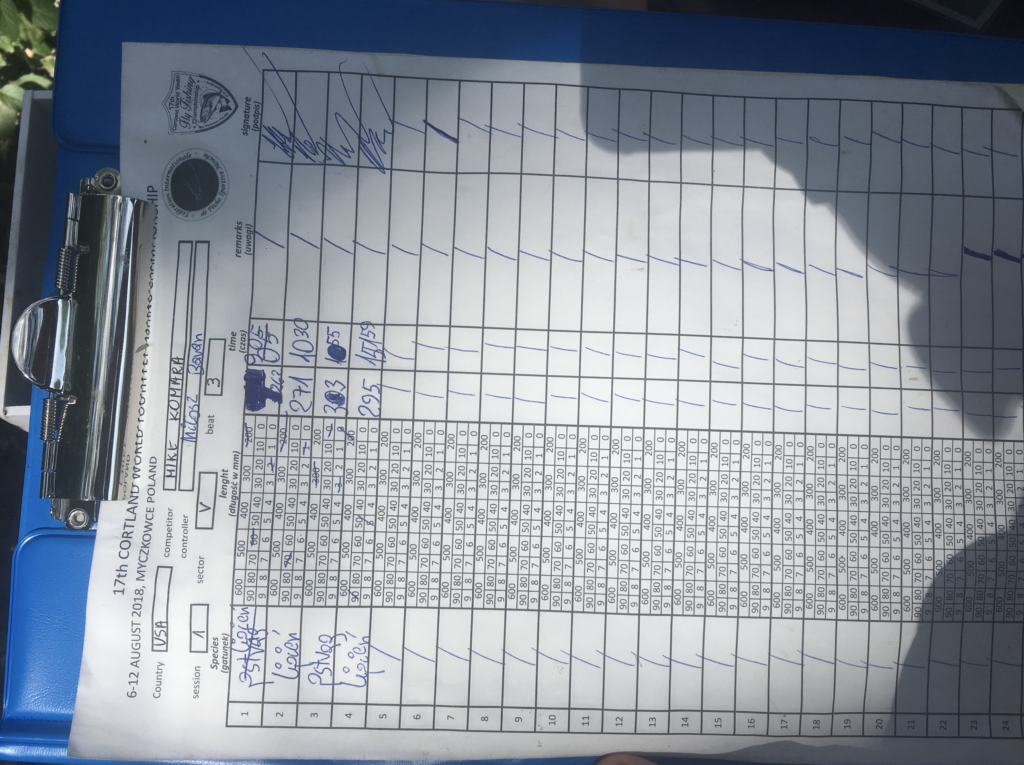
How do comps effect other anglers?
Most comps are also small, usually twenty anglers or less with a max around sixty for the largest ones. They’re very spread out, with only one angler every 200 yards (one beat) or so and on average ten anglers fishing in just a one and a half mile stretch of water. Since each angler is judged by another in the competition, this also means that in the average twenty-person comp only ten anglers will be fishing at any given time. This is barely more anglers taking up space than if a big group of friends went fishing. Of course, we all want solitude while on the water, but it is, after all, public water, and we all have a right to it.
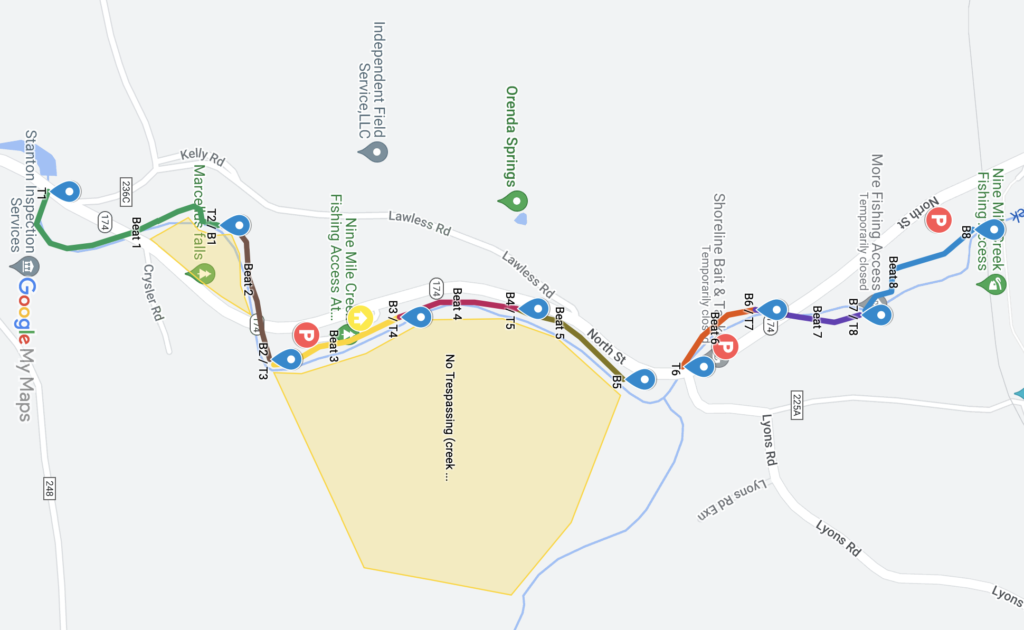
Though I can see how fishing water being used for a competition can make some anglers uncomfortable, no one participating in a comp is allowed to try and make a recreational angler leave or fish somewhere else. A competitor might let them know there is a competition going on and that they may find more success out of the comp water, but the recreational angler’s response will always be respected and they can do what they like. It is highly frowned upon in the competitive community to encroach on a recreational anglers’ water or interrupt their fishing. Though anyone competing would love to be able to fish all the water assigned to them, competitors understand the water belongs to everyone and do our best to accomplish our goals without interfering with anyone else’s day.
I will say that recreational anglers may have a harder time catching fish during or immediately after a competition. Competitions attract a lot of beginners, but at least half the field will be made up of world class fishermen and women. The short stretch of water the comp is on will be fished pretty hard, which sometimes makes catching fish out of these sections a more difficult for a day or two. However, I don’t think you can hold this against competitive angling. The issue here isn’t that we are competing or fishing the water, but that we are fishing it well. It’s not our goal to make it harder for everyone else, but we also can’t be faulted for catching a lot of fish. There are plenty of exceptional anglers in the U.S., and any of them fishing hard for a day will have a pretty similar effect on the fish. Get one good angler fishing behind another, and the fish will be just as pressured as in the average competition.
Finally, the pressure competitions bring to the rivers, anglers, and fish is negligible compared to other aspects of our sport. More guide services, fly shops, and lodges open and grow in popular areas every year. These are services whose main goal is to get more anglers on their local waterways and provide them skills and information to catch more fish. Please don’t get me wrong, I don’t think any of these things are bad at all as long as they’re run ethically. I do, however, think the general population of anglers need a little bit of perspective here. These businesses bring significantly more pressure operating all season near a river than competitors do running 1-3 comps on that river a year. Even though they bring way more pressure, people don’t dislike them nearly as much as competitions on their home waters.
Concluding thoughts
So why do so many American anglers hate competitive fly fishing? Competitors don’t hurt the fish or abuse the waterways, they respect the resource and non-competitive anglers, and they bring much less pressure to the waterways than well liked fishing businesses. We are just normal anglers who fish specific areas a few days a year and compare numbers when we’re done. In reality, how is the goal to catch more fish than your peers during a day of fishing any different or worse than the goal to catch a twenty-inch fish? I think the real reason for the negative opinions on competitions is a lack of understanding about what competitions are about, how they are run, and what competitors enjoy about them. It’s not just the winning that matters to us. It’s the places we get to see, the things we get to learn, and friends we gain. We value our time on the water, and want to keep the fisheries pristine so we can continue to enjoy our time on them, just like any anglers. I think with a bit of education and perspective competitive fly fishing would be much more accepted in the U.S. Just because competitions don’t exactly align with the popular ideology of the sport or some people’s personal reasons for fishing does not mean they should be demonized and that the people who enjoy them shouldn’t be allowed to fish the way that makes them happy.
If you’re interested in competing or would like to spectate a local competition, you can find the upcoming ones on Flycomps.com. If you are interested in learning more about our national teams, more info can be found at flyfishingteamusa.com, uswomensflyfishing.com, and the U.S. Youth Fly Fishing Team page.
-Mike Komara

When I read the comments on that article I honestly couldn’t believe the hate. I had to post a positive comment and was glad other people finally liked what I shad to say
I’ve participated in one comp and loved the experience. The other anglers in the comp were gracious and helpful, and at times it felt like we were all on the same team rather than competing against each other.
I think that one reason for the negativity towards comps is that comp anglers are openly competitive (which, paradoxically, allows them to be very supportive of each other) whereas many recreational anglers lie to themselves about being competitive. This cognitive dissonance can be expressed as hostility towards those who openly embrace what one denies.